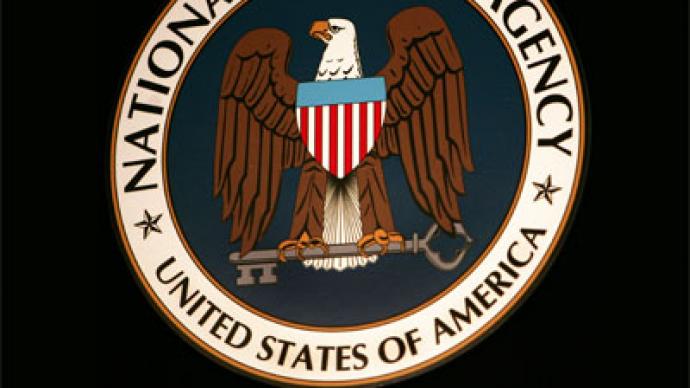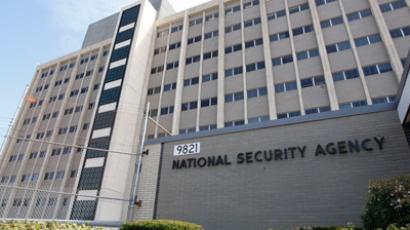'Just trust us' - NSA to privacy advocates in court

The US National Security Agency isn’t outright rejecting claims that they’ve been conducting surveillance on everyone in the country, but they want Americans to at least give them the benefit of the doubt when it comes to their intensions.
The NSA was in court again this week to challenge a potential class action lawsuit that aims to end the governmental agency’s electronic surveillance program begun by President George W. Bush in the aftermath of the September 11, 2001 terrorist attacks; but while the plaintiffs in the case want to abolish the warrantless wiretapping and spying on innocent civilians started under that administration’s Terrorist Surveillance Program, the government’s argument is now one that requires Americans to accept the agency’s insistence they’re really not up to anything worth worrying about, Courthouse News reports. In Federal Court this week, the NSA said that the public should simply trust the government when they say they aren’t abusing any powers legally or illegally in place to engage in clandestine surveillance of each and every citizen.A San Francisco courthouse was the venue for the latest episode in the matter of Jewel v. NSA, a 4-year-old case that charges the spy agency with once and still operating an "illegal and unconstitutional program of dragnet communications surveillance.”Lead plaintiff Carolyn Jewel brought on the suit back in 2008 with the assistance of the Electronic Frontier Foundation and on behalf of current and former customers of AT&T who say they were affected when the telecom giant allowed the NSA unfettered access to their systems to spy on the communications of any customers they wish.The plaintiffs say that the NSA ordered the attachment of surveillance devices to AT&T’s master network in order to have the ability to divert any communication routed through their service to secure facilities to allow for "an unprecedented suspicionless general search." When former NSA senior executive Thomas Drake condemned the agency’s overly broad and costly surveillance of innocent Americans in 2007, the government attempted to silence him by filing an indictment under the Espionage Act of 1917.When Jewel v NSA ended up in federal court in 2010, US District Court Chief Judge Vaughn Walker originally dismissed the case, only for the Ninth Circuit Court of Appeals deciding to reinstate it last year. "Since September 11 and now, through two administrations, the executive has engaged in unprecedented assertions of power without regard to the constitutional and statutory limits of its authority,” attorney Richard Wiebe wrote in the case’s initial filings. “It has correspondingly sought to exclude the judiciary from adjudicating whether these exercises of executive power have stayed within the limits set by the Constitution and by Congress."Currently, the government alleges that they do not have to respond to charges of unwarranted eavesdropping because they have immunity in instances where disclosure could disrupt national security. As Courthouse News previously reported, the federal government “claims to have invoked state secrets privileges that protects it from any litigation consequentially stemming from supposed violations of those acts.” Plaintiffs, however, say that the government waived its right to sovereign immunity when it put itself in violation of the Foreign Intelligence Surveillance Act (FISA) as well as the US Constitution’s Fourth Amendment that protects Americans from unlawful searches and seizures.Dozens of similar lawsuits against Verizon and other telecommunication companies were initially filed during the George W. Bush administration, but amendments added to the Foreign Intelligence Surveillance Act (FISA) in 2008 granted those companies immunity to civil actions “providing assistance to an element of the intelligence community." Now, however, plaintiffs say the government must be held accountable for their own violations of FISA and the Constitution.Responding to the case earlier this month, the government insisted, "The Foreign Intelligence Surveillance Act does not authorize a claim against the Government defendants sued in their official capacities, the state secrets privilege bars the litigation of plaintiffs' remaining claims and the state secrets privilege is not displaced by the FISA.”“[T]he disclosure of sensitive intelligence sources and methods . . . reasonably could be expected to cause exceptionally grave harm to national security,” the government wrote in one of three motions filed so far to put Jewel v. NSA to rest. "The very purpose of these cases is to put at issue whether the NSA undertook certain alleged activities under presidential authorization after 9/11, and whether those activities continue today. At every stage, from standing to the merits, highly classified and properly privileged intelligence sources and methods are at risk of disclosure. The law is clear, however, that where litigation risks or requires the disclosure of information that reasonably could be expected to harm national security, dismissal is required."Wiebe and the plaintiffs see things another way, though, and wrote earlier that "The government here seeks to transform the state secrets privilege from a powerful but targeted evidentiary shield into a justiciability sword, preventing the Judiciary from engaging in its constitutional duty." The government’s goal, Wiebe continued, “is to convince this court to close its eyes to a program that impacts every American who uses a phone, email or the Internet. The judiciary must recognize the dangers of allowing the executive to distort narrow exceptions like the state secrets privilege into broad unfettered power to 'turn the Constitution on or off at will.' Even in the case involving war powers, the Supreme Court has confirmed that the 'war power does not remove constitutional limitations safeguarding essential liberties.'"This week the government did not fight back as hard to defend any surveillance practices engaged by either the George W. Bush or Obama administrations, but said innocent Americans should trust that they aren’t in danger of being watched."This lawsuit puts at issue alleged intelligence activities of the National Security Agency ('NSA') purportedly undertaken pursuant to presidential authorization since the terrorist attacks of September 11, 2001," the NSA says in their latest response. "For the past six years, the nation's most senior intelligence officials, in succeedingadministrations, have consistently advised this court that litigation of plaintiffs' allegations would risk exceptional damage to national security, setting forth in detail the matters at issue. Renewed invocation of the state secrets privilege in this action by the Director of National Intelligence has undergone rigorous review within the Executive Branch under a process providing that privilege will only be asserted where necessary to protect against significant harm to national security. Contrary to plaintiffs' suggestion, in these circumstances dismissal would not constitute an abdication of judicial authority, but the exercise of judicial scrutiny of the privileged information at issue and the application of established law to protect compelling national security interests."US District Judge Jeffery White will consider the latest motion on November 2 and could decide to let the arguments be brought to trial. If the case is allowed and elevated to class action status as the plaintiffs hope, attorneys fear that a victory for the NSA would mean the continuation of warrantless dragnet surveillance would continue — this time on-the-books.














